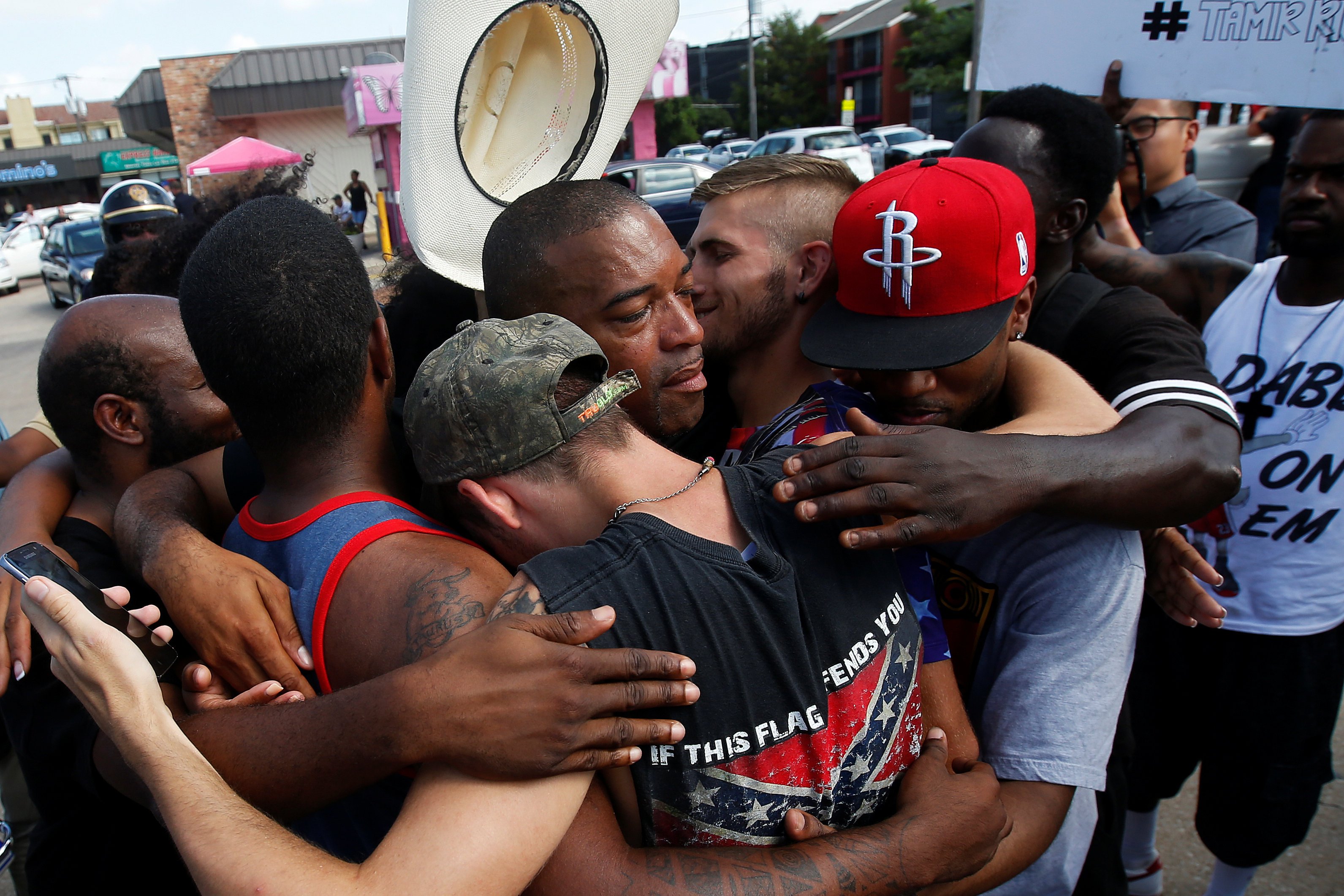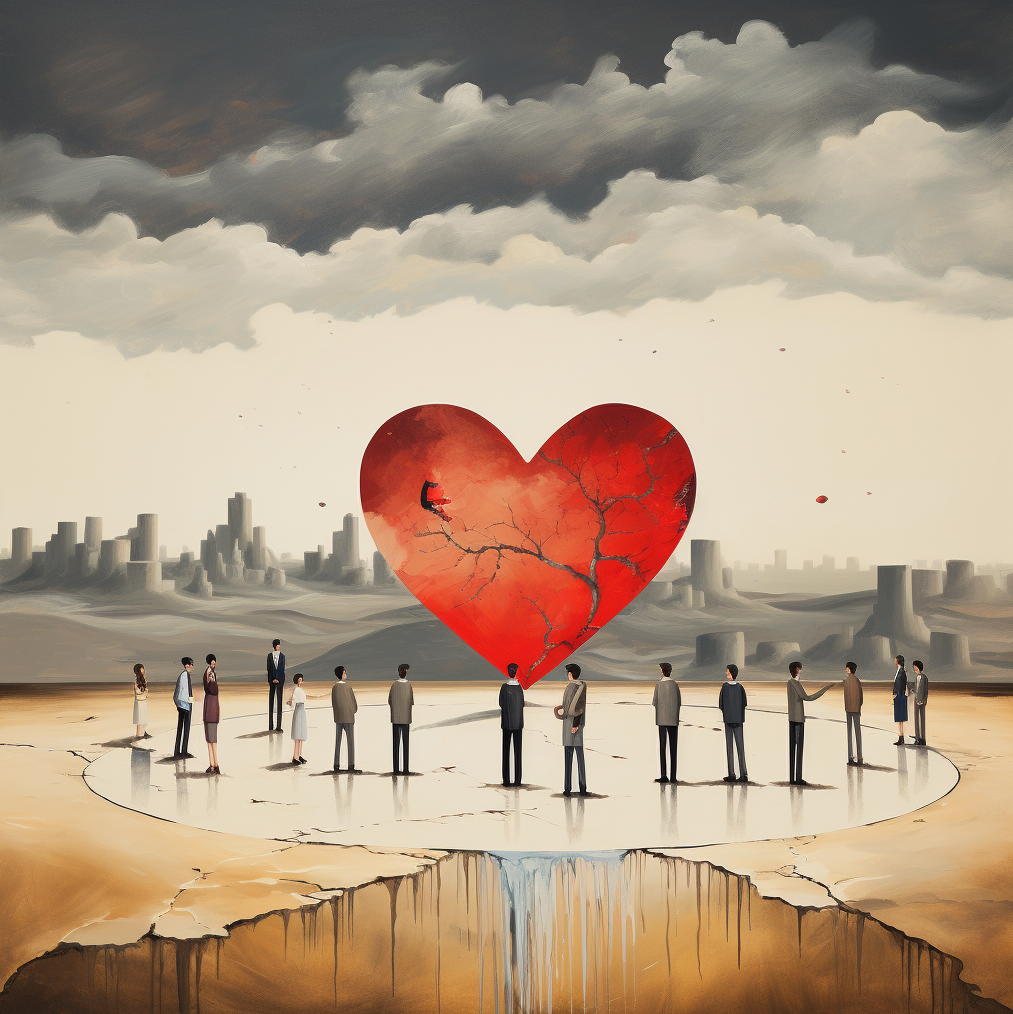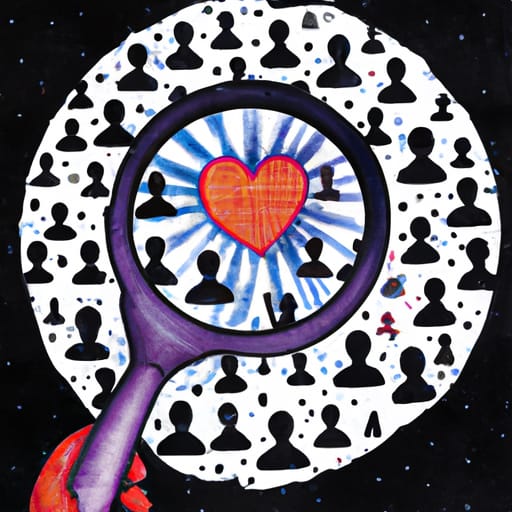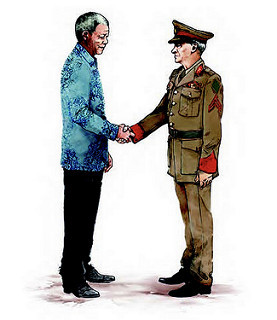Beyond Polarizing Culture Wars: Centering an Ethic of Love for Activism and Society
"If the world is to be healed through human efforts, I am convinced it will be by ordinary people, people whose love for this life is even greater than their fear.” ― Joanna Macy, environmental activist and Buddhist scholar
Hey there PEERS subscribers,
As a grassroots nonprofit committed to restoring the greater good in society, we are grateful for your support. Our most visited PEERS website, WantToKnow.info, specializes in revealing critical information about important cover-ups reported by reliable news sources and revealing government documents. Thus, many of our readers are on the courageous journey to face some of the darkest political and economic forces shaping global society. Yet some of our readers are more familiar with our other websites, which focus on inspiration and practices that center an ethic of love into our lives. In both senses, we are committed to challenging media establishment narratives that divide us instead of bringing us together for the common good.
This is especially relevant and needed in a time where the current culture wars have increased hate, propaganda, vindictive political correctness, and centralized power from all sides of the political aisle. A fascinating investigation into the state of progressive advocacy groups around the country reveal how these culture wars are creating massive conflicts, bringing these critical organizations at an unprecedented standstill.
The more divided we are, the more dysfunctional and easy to manipulate we become. Media narratives, often influenced by government and corporate special interests, use powerful emotions of fear and anger to manipulate and divide the public for their own benefit. This noise has also polluted alternative and independent spaces too, where people cluster to media organizations that fit their political beliefs, dismiss other outlets, and promote derogatory labels for those who put their faith in official narratives.
We can't heal or make sense of our challenging times alone. Others may have views that open up different insights. The Asch psychology experiments on conformity reveal how strongly a person’s opinions are affected by people around them, even when it means denying their own intuition and sense of things. Yet interestingly enough, partnering with just one other person enormously reduced conformity in giving a false answer. This punctures the illusion that everyone has the same opinion. Hardwired for connection, we might find that open inquiry together about crucial societal issues is a necessity for democracy and collective survival. For further exploration, I've recently written about how we might better navigate the vast media landscape with this integrative approach.
People fail to get along because they fear each other; they fear each other because they don't know each other; they don't know each other because they have not communicated with each other. ― Martin Luther King Jr.
Through my own lived experience of working in politically and culturally diverse spaces, I'm certain that a better way of relating to each other is possible. It's not our differences that divide us, it's the judgment about our differences that do. Healing the polarization in our own lives and larger society is necessary for our collective future, especially a future that is free from harmful and oppressive systems. With our political systems increasingly feeling like a battleground, theatrical show or a confusing game of charades, who do we turn to for inspiration?
Fred Rogers, a prominent moral voice, once said that in times of “scary news" of tragedy and disaster, his mother taught him to not focus solely on destruction or violence. Instead, look for the helpers, who are everywhere. These are the thought leaders and role models healing the polarization in society and breaking down the walls of groupthink and conformity. In doing so, we begin to re-center the ethic of love in our lives and activism.
If we carry intergenerational trauma, then we also carry intergenerational wisdom. It’s in our genes and our DNA. ― Kazu Haga, nonviolence and restorative justice activist
Centering an Ethic of Love In Our Lives and Activism
There are many reasons for grief, confusion, and rage right now. Martin Luther King Jr. wrote about these related concerns in his final book: Where Do We Go From Here? Chaos Or Community. He asserted that humankind has the resources and technology to overcome oppression and corruption. With many awakening to mass deceptions and corruptions, our times call for some restoration of community, and our sense of common good and connection with each other. Paradoxically, this also means to pay attention to established interests that gain by confusing and dividing us. To some degree, this means noting what power elites are pushing for, and to correct efforts that serve private gain over the common good (people and environment).
Along the way of life, someone must have sense enough and morality enough to cut off the chain of hate. This can only be done by projecting the ethic of love to the center of our lives. — Martin Luther King Jr.
King often spoke of his vision for a Beloved Community, in which people centered the Greek social concept agape in their lives. Instead of it meaning something sentimental or affectionate, agape is the understanding, creative, redeeming goodwill for all people. He shares eloquently: "If I respond to hate with a reciprocal hate, I do nothing but intensify the cleavage in broken community. I can only close the gap in broken community by meeting hate with love … Agape is a willingness to go to any length to restore community."
This isn't just a feel-good, rose-colored glasses approach to seeing the world. In fact, the longest study on human happiness reveals that the top factor to a long and healthy life isn't career achievement, exercise, or a healthy diet. The one factor that continually demonstrated an enduring importance is having meaningful, quality relationships with loved ones and in the larger community.
Social commentator and poet bell hooks wrote a powerful essay, "Love is the Practice of Freedom," which further explores the need for love in any social movement. She argues that approaches to activism are rooted in overemphasizing material goals like policy change, lawsuits, and learning political jargon. Yet very little attention has been put on changing how we think and relate to each other and our environment. Instead, it is more common to see the shutting down of different perspectives and people treating others as mere disposable artifacts in the cultural economy.
In this society, there is no powerful discourse on love emerging either from politically progressive radicals or from the Left. The absence of a sustained focus on love in progressive circles arises from a collective failure to acknowledge the needs of the spirit and an overdetermined emphasis on material concerns. Without love, our efforts to liberate ourselves and our world community from oppression and exploitation are doomed.
Without an ethic of love shaping the direction of our political vision and our radical aspirations, we are often seduced, in one way or the other, into continued allegiance to systems of domination. It has always puzzled me that women and men who spend a lifetime working to resist one form of domination can be systematically supporting another…. (with) many of us motivated to move against domination solely when we feel our self-interest directly threatened. Often, then, the longing is not for a collective transformation of society, an end to politics of dominations, but rather simply for an end to what we feel is hurting us.
Until we are all able to accept the interlocking, interdependent nature of systems… we will continue to act in ways that undermine our individual quest for freedom and (the) collective liberation struggle. The civil rights movement transformed society in the United States because it was fundamentally rooted in a love ethic. No leader has emphasized this ethic more than Martin Luther King, Jr. King believed that love is "ultimately the only answer" to the problems facing this nation and the entire planet. I share that belief that it is in choosing love… as the ethical foundation for politics, that we are best positioned to transform society.
Dominator culture has tried to keep us all afraid, to make us choose safety instead of risk, sameness instead of diversity. Moving through that fear, finding out what connects us, reveling in our differences; this is the process that brings us closer, that gives us a world of shared values, of meaningful community.
For hooks, love practiced in public showed up as: the willingness to build relationships with those who are different than us; seek to understand the motivations of those we deem as enemies; face and transcend our fears together; take care of our health and emotional lives; and work through conflict to cultivate deeper understanding of those around us. What if we included these qualities in our daily experience, just as much as researching the news, facing injustice, and holding the powerful accountable? How would this enhance our activism?
An ethic of love affirms what we are against, what we don't like, and what needs protecting. Yet it also invites us to take responsibility for translating our rage and anger into possibilities for a more just society and world. The Compassionate Rebel: Energized by Anger, Motivated by Love is a compilation of stories of 50 people who have experienced physical and sexual abuse, combat trauma, and many types of oppression who have now become nonviolent, social change activists. What the authors found was that "the majority of the acts of compassion stemmed from anger, and their ability to achieve social change is maximized when the capacity for rage against injustice and capacity for love are fully joined."

Opposing protest groups embrace despite their political differences after multiple police shootings in Dallas.
Another powerful example of a love ethic in practice is the story of former South African president and social rights activist Nelson Mandela, who spent his years in prison becoming close friends with his prison guard. It was in prison that he learned Afrikaans, the language of his oppressor while studying their history and reading their favorite poets.
Mandela's effort to create a meaningful relationship with South African general Constand Viljoen was perhaps the most inspiring of all. Viljoen was the former chief of the South African Defense Force, which had destroyed dissent in Black townships and assassinated Black activists. White supremacist groups in South Africa were terrified of losing political power in an impending national election. Murders and violence were occurring in the streets between political factions. Viljoen was asked by white supremacist groups to lead an armed insurrection against the government.
However, like Mandela, Viljoen wanted to avoid a looming civil war. The next thing that happened was interesting. Mandela asked if Viljoen wanted to come over for some tea. By the end of the meeting, Mandela had disarmed Viljoen. This prompted Viljoen to call off the insurrection and persuade other White South Africans to participate in the upcoming election. A year later, when Mandela was inaugurated as South Africa’s President following the nation’s first fully Democratic elections, Viljoen stood in the middle of the new parliament, saluted him, and would later call him “the greatest of men.”
Mandela understood on some profound level that ultimately, whether you are Black or White, right wing or left wing ... Political views are like the dress you wear, but underneath them is a flesh and blood human being. If you cut through those and start finding the heart and appeal to their generosity, you’re going to make them feel better about themselves. — John Carlin, journalist
Given the shadowy network of corruption and special interests within US government systems, what Mandela did isn't something that would necessarily work with Big Pharma, or the US military-intelligence complex. Yet what if each of us were to practice this commitment to the greater good in our own lives now... with those we disagree with and those in power? What would we need to heal, change or let go of in ourselves to make this possible?
Whether it is communities fighting for freedom from censorship in all its forms, harsh public health mandates, or human rights abuses, deep down it is all the same work. Movement Journalism, an emerging project in the southern US, says that any healthy social movement is about “building connection where there was no connection, creating relationships where there were no relationships, and weaving thick neighborhoods where there were thin neighborhoods.” Foregrounding personal stories and human exchanges strengthen our resistance to conformity and brings out the best in humanity. King felt that this capacity to help build a Beloved Community (rather than focus solely on taking down our enemies) is our best hope for a durable future that can outlast the harms and abuses in our world. Weaving together critical thinking and embodied sensemaking, our organization seeks to be a part of such a love-centered movement.
Here are some recent news articles we've summarized that emphasize how love can show up in our activism:
What if Instead of Calling People Out, We Called Them In?, New York Times
How a dose of MDMA transformed a white supremacist, BBC
How Taiwan's 'civic hackers' helped find a new way to run the country, Reasons to be Cheerful
Braver Angels: Seeking to de-polarize America, CBS News
After The Genocide, Author Witnessed How Rwandans Defined Forgiveness, NPR
The Library Where the 'Books' Are Human Beings, Reasons to be Cheerful
How Nelson Mandela's former prison guard is keeping his legacy alive, The Independent
How Peace Activists Are Beating the U.S. Military at its Own (Video) Game, The Progressive
This Minecraft library is making censored journalism accessible all over the world, The Verge
Want Safer Streets? Cover Them in Art, Reasons to be Cheerful
These Black and White churches began worshiping together during the pandemic and haven't stopped, Washington Post
A Monthly Ritual of Selflessness Has Transformed Rwanda, Reasons to be Cheerful
Why Our Movements Need to Start Singing Again, Common Dreams
India's 'Open Prisons' Are a Marvel of Trust-Based Incarceration, Reasons to be Cheerful
Fights erupted at a high school in Louisiana. So these dads took matters in their own hands, CNN
I refuse to accept the cynical notion that nation after nation must spiral down a militaristic stairway... of destruction. I believe that unarmed truth and unconditional love will have the final word in reality. This faith can give us courage to face the uncertainties of the future. It will give our tired feet new strength as we continue our forward stride towards the city of freedom. When our days become dreary, with low hovering clouds, and our nights become darker than a thousand midnight's we will know that we are living in the creative turmoil of a genuine civilization struggling to be born. — Dr. Martin Luther King, Jr.
With faith in a transforming world,
Amber Yang for PEERS and WantToKnow.info
Finding Balance: WantToKnow.info Inspiration Center
WantToKnow.info believes it is important to balance disturbing cover-up information with inspirational writings which call us to be all that we can be and to work together for positive change. For an abundance of uplifting material, please visit our Inspiration Center.
See our exceptional archive of revealing news articles.
Please support this important work: Donate here
www.momentoflove.org - Every person in the world has a heart
www.personalgrowthcourses.net - Dynamic online courses powerfully expand your horizons
www.WantToKnow.info - Reliable, verifiable information on major cover-ups
www.weboflove.org - Strengthening the Web of Love that interconnects us all
Subscribe here to the WantToKnow.info email list (two messages a week)













































































